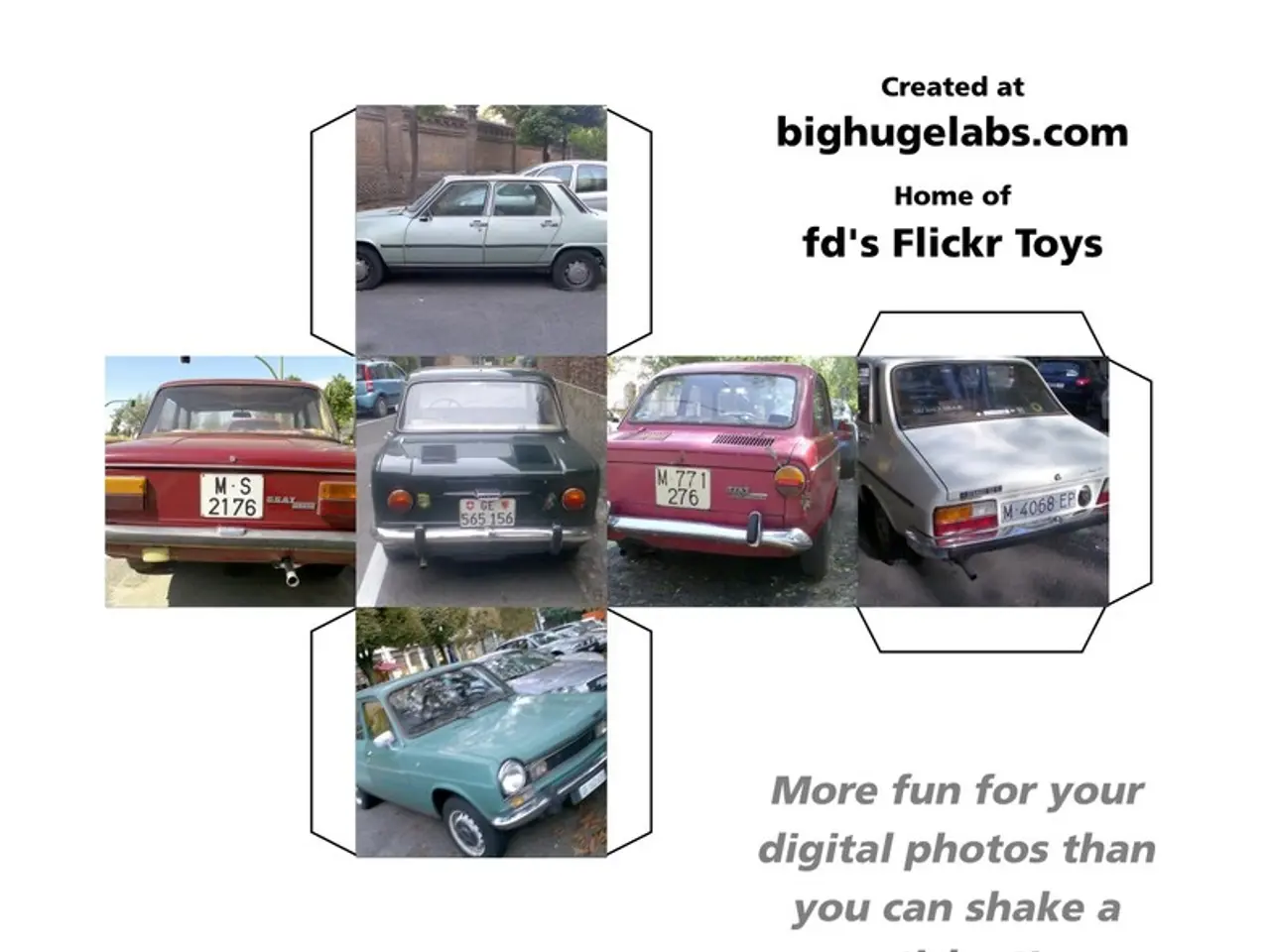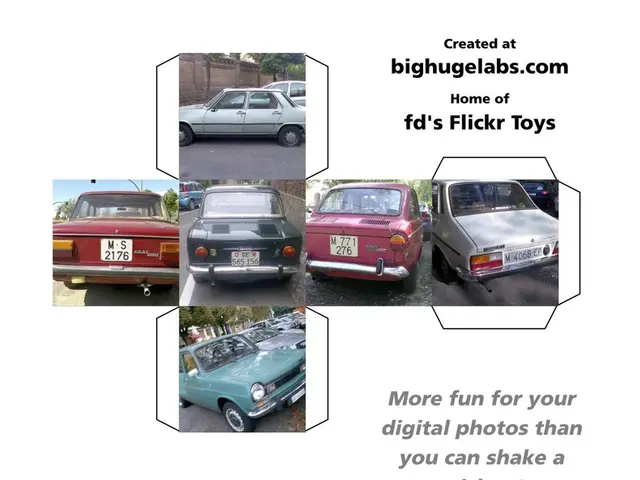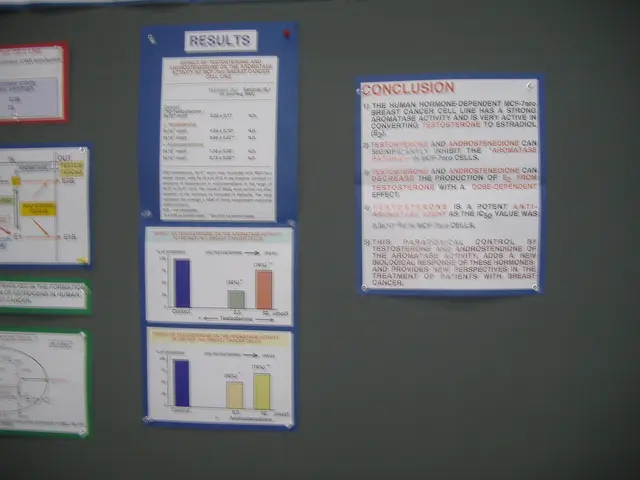Tesla Experiences Sales Halt in California Due to Ongoing Autonomous Vehicle Investigation
Tesla's Future on the Line in California as Regulators and Safety Advocates Question Autopilot Claims
In a high-stakes legal hearing in Oakland, California, Tesla is facing allegations of false advertising regarding its Autopilot and Full Self-Driving (FSD) features. The California Department of Motor Vehicles (DMV) accuses Tesla of misleading consumers by suggesting that the vehicles can drive autonomously without driver action, a claim that Tesla vehicles cannot fulfil under current technology levels.
The hearing, which began on July 21, 2025, could decide Tesla’s ability to sell and manufacture vehicles in California, the largest EV market in the US, for at least 30 days if the DMV prevails. The DMV alleges that specific marketing phrases such as “autopilot,” “full self-driving capability,” and promises that the system can conduct short and long-distance trips with no driver intervention, are misleading and constitute false advertising.
Tesla denies the allegations, arguing that these marketing statements are constitutionally protected free speech and that they clearly warn users that active driver supervision is required. Tesla maintains its Autopilot system is classified as Level 2 automation, meaning the driver must remain alert and engaged at all times, and that the DMV is ignoring these explicit disclaimers and context.
Public criticism has intensified, with activists and safety advocates pointing to fatal crashes allegedly linked to Tesla’s driver-assist technology and calling for regulatory action. The focus on Tesla's self-driving technology comes as the company is about to report second quarter earnings, which are expected to show a significant revenue drop.
If Tesla receives an unfavourable decision (e.g., license suspension or restitution order), it can file a petition challenging the DMV’s final decision in Superior Court on grounds such as abuse of discretion, decision not supported by findings, or insufficient evidence. The California DMV's proposed decision should come within 30 to 60 days after the hearing concluded this week.
The process of scrutinizing Tesla's marketing of Autopilot and Full-Self-Driving began in May 2021 by the California Department of Motor Vehicles (DMV). A federal court in San Francisco allowed a consumer class-action suit against Tesla for deceptive marketing of its self-driving technology to proceed in March 2024.
Tesla could also request a stay of enforcement during the appeal - i.e., to delay a stop-sell order from taking effect until the judicial review is complete. Additionally, the order may force Tesla to change its marketing on mobility technology in California and compensate owners for the unmet performance of the vehicles' semi-autonomous driving feature.
As of July 21, Tesla's shareholder value was approximately $1.063 trillion, making it the 10th most valuable company globally. Wall Street analysts predict profits from Autopilot, Full-Self-Driving, AI, robotics, and robotaxis will drive Tesla's future profits and shareholder value. However, the outcome of this hearing may significantly impact Tesla's business model around Autopilot and Full-Self-Driving technology.
Key points:
- Hearing venue: Oakland, California, Administrative hearing in late July 2025
- Allegation: Tesla’s ads are misleading consumers on the capabilities of Autopilot and FSD
- DMV's requested action: Suspend Tesla’s license to sell and manufacture vehicles in California for 30 days
- Specific ads challenged: Terms like “full self-driving capability” and claims of autonomous driving
- Tesla’s defense: Advertising protected by free speech; vehicles clearly require active driver supervision
- Potential consequences: Suspension of Tesla’s sales and manufacturing license in California, monetary restitution
- Public concern: Fatal crashes linked to Autopilot technology raise safety and ethical issues
- Potential 30-day stop-sale order in California due to not meeting self-driving claims
- A negative ruling could impact Tesla’s future business model around Autopilot and Full-Self-Driving technology
- The DMV accused Tesla of falsely implying full autonomy in its marketing, violating a California Vehicle Code provision
- The National Highway Traffic Safety Administration conducted a three-year investigation reviewing 956 crashes involving Tesla Autopilot, finding at least 467 crashes where Autopilot was believed to be employed, including 13 fatal accidents, according to the agency's report
- A separate analysis by the Washington Post based on NHTSA data since 2019 found 736 crashes encompassing 17 fatalities, with 11 deaths occurring since May 2022.
- The California Department of Motor Vehicles (DMV) is challenging Tesla's marketing of Autopilot and Full-Self-Driving technology, alleging false advertising and violation of a California Vehicle Code provision.
- if Tesla is found guilty, consequences may include a 30-day suspension of its license to sell and manufacture vehicles in California, and potentially monetary restitution for misleading consumers.
- Public concern over fatal crashes linked to Tesla’s driver-assist technology and safety issues has intensified, calling for regulatory action and raising ethical concerns within the transportation industry.
- The California DMV's hearing against Tesla could significantly impact the company's business model, affecting future profits and shareholder value that rely on Autopilot, Full-Self-Driving, AI, robotics, and robotaxis, as predicted by Wall Street analysts.




